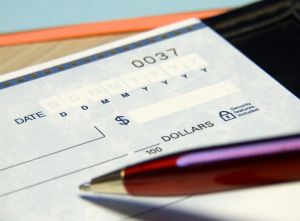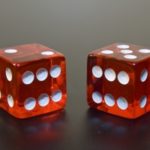 We’re all in the business of influencing other people. Whether it’s getting your children to eat their vegetables, or encouraging someone to buy your product, every day we’re trying to get people to do what we want.
We’re all in the business of influencing other people. Whether it’s getting your children to eat their vegetables, or encouraging someone to buy your product, every day we’re trying to get people to do what we want.
Listening to a podcast of ‘Freakonomics’, I heard a fascinating way to influence behavior.
The story began with the fact that if Americans had to find $2,000 over 30 days for an emergency, most would find it difficult to do. Why? Because they are terrible at saving money. At the same time, they spend a fortune on lottery tickets. Half of people surveyed said they’d played the lottery in the last year.
So, here’s the concept. Why not bring the thrill of playing the lottery to saving money?
In what’s known as prize-linked savings (PLS), rather than buying a lottery ticket, you place money in a savings account that earns a lower interest rate, but offers the chance of winning a big cash prize. And even it you don’t win the cash prize, you still have the money you put in the account. For the past three years, it’s been used by credit unions in Michigan and Nebraska.
Dressed in a white skivvy and red jacket, 87 year-old Billie June Smith smiles as she holds a giant check with her name and $100,000.00 written on it. She’s surrounded by people clapping and smiling. We know giant checks are only used for promotional purposes. What are they celebrating? Billie June Smith won the money from her credit union, all because she opened a savings account – an account in which the balance was a mere $75.00.
Dubbed the ‘no lose lottery’, it’s about bringing excitement and thrill – reward anticipation – to savings. In the last three years, prize-linked savings in Michigan and Nebraska alone have encouraged 25,000 savings accounts to be opened and $41 million in savings. It’s about turning something boring and mundane into a game.
Think about it. Saving is usually thought of as a sacrifice. It’s about putting off today for the future. “Imagine how many people could be reached if saving was an exciting game, with no risk of losing?”
There’s one fly in the ointment. The people set to lose from this system are the state-run lotteries. But putting that to one side, isn’t it interesting to see how a shift in perception – how making something fun – influences behavior?
This forms part of a broader development known as ‘gamification’ – taking something boring and turning into a game.
In advertising, it’s about encouraging engagement, loyalty or sharing of a brand and is the evolution of loyalty programs, such as frequent flyer points or rewards programs. The purpose of loyalty programs is to create a consumer habit through reward. You will choose to fly with an airline, or shop at a supermarket, because they’ve rewarded you so often it becomes an automatic choice for you. Gamification takes this concept a step further. It generates positive feelings towards a brand by offering points, badges, discounts and awards. Because we like our thoughts, feelings and actions to be aligned, when one of these triggers is positive, you’re more likely make the others match. In terms of advertising, if you feel good about a brand, you’re more likely to buy it.
Gamification is not just about financial benefits but status, access and power. It’s about being able to skip the line at your favorite venue in front of all your friends. When you ‘gamify’ something, you make it more enjoyable which means users are more likely to view you positively and undertake the behavior you want from them.
The reason we’re so hooked on games rests with our brain’s reward mechanism – dopamine. When we engage in an activity that has a reward, our brain gets excited as it anticipates the reward. Like a poker machine, we don’t know how much the reward will be – it could be nothing. But our brain’s response to this unpredictable pattern is deeply ingrained. It’s what motivated us to keep hunting for food when we were hunter-gatherers. Now, this drive has been transferred to checking emails and Twitter accounts – and buying lottery tickets.
When you can, turn something boring into a game. You might win big.
Photo Credit: http://www.sxc.hu/photo/754431




